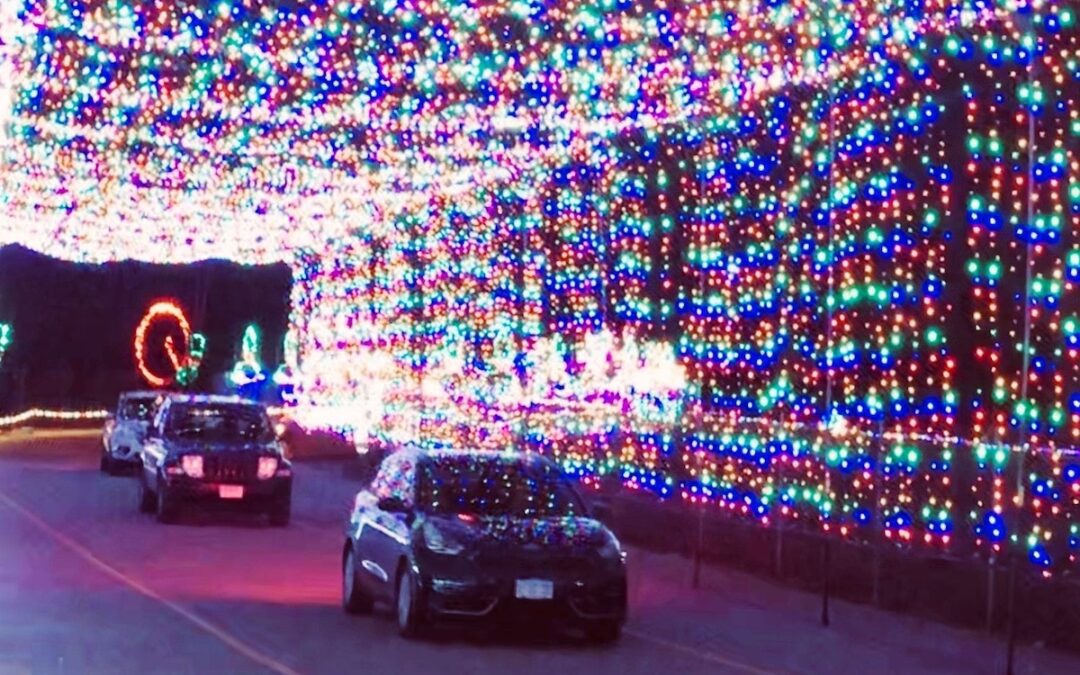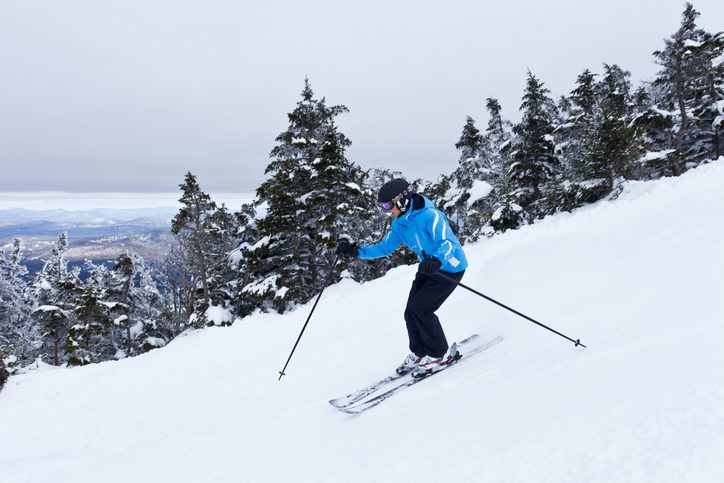
The ACLU of New Hampshire filed a class-action lawsuit to challenge the state's loitering law. (Ken Gallager/CC BY-SA 4.0).
The ACLU of New Hampshire has filed a class-action lawsuit to challenge the state’s loitering law. Here’s everything you need to know.
Robert Clark has been sleeping in the Concord woods since 2012. As an unhoused person, he’s been arrested twice under New Hampshire’s loitering law. The law bans “loitering and prowling,” and is loosely applied to any situation that may “warrant alarm for the safety of persons or property in the vicinity.” Clark, along with the American Civil Liberties Union (ACLU) of New Hampshire, believes this gives police the power to discriminate against and harass unhoused people in the state.
The 37-year-old isn’t the only unhoused person who has faced legal troubles because of this law. Between July 2021 and December 2024, a circuit court dismissed 89 cases where the Manchester Police Department charged people with loitering violations. According to the ACLU, approximately 50 of those involved an unhoused person, accounting for roughly 56% of cases even though Manchester’s unhoused individuals only make up about 0.5% of its population.
Given this revelation and similar findings in other areas of the state, the organization has since opened an investigation into the matter and, along with Clark, have filed a class-action lawsuit to challenge the constitutionality of the loitering law. The overarching hope is to amend the wording so it isn’t quite so vague. The ACLU’s legal director, Gilles Bissonnette, who also serves as Clark’s attorney, said, “Police shouldn’t have the power to harass and arrest any person for any reason, but New Hampshire’s loitering law allows them to do just that,” because it lacks applicational clarity.
Bissonnette added that charging these individuals with a violation that doesn’t directly apply to them or their behavior criminalizes the unhoused community “for simply existing in public spaces.” He went on to say that charging people with a crime they haven’t committed “does nothing to solve the root cause of homelessness or create real solutions to our state’s housing crisis.”
The ACLU’s lawsuit seeks to argue that the current iteration of New Hampshire’s loitering law is unconstitutional, and that it serves as a direct violation to the Fourth Amendment’s right against unreasonable seizures and searches, as well as its right to due process.
What does NH’s loitering law currently state?
During a recent interview with NHPR, Gilles Bissonnette said that New Hampshire’s loitering law as it currently stands has been on the books since the 1980s. It was originally introduced in the 1970s but was then modified about a decade later. Essentially, the rule prohibits anyone from loitering (hanging around a place/building/etc. without having an obvious reason for being there), or prowling (the same general definition for loitering but with the intent to carry out a crime).
For Bissonnette, he believes this leaves room for error when the police apply the law to unhoused people. Speaking with NHPR, he said, “Basically what it says is that a person commits a violation of this loitering law if they knowingly appear at a place or at a time under circumstances that warrant alarm, for the safety of persons or property in the vicinity.”
He added, “The problem that we think exists with that language is that it allows for unfettered discretion for police to stop and cite individuals. I mean, these are phrases that have no definition. And that’s exactly what we’ve seen, unfortunately, in our over-two-yearlong investigation of how this law has been enforced.”
The ACLU of New Hampshire thinks police have improperly used the state’s loitering law
For the ACLU of New Hampshire, it appears as though police departments throughout the state have been improperly applying this loitering law to criminalize a group of people who are already severely marginalized. During Gilles Bissonnette’s conversation with NHPR, he clarified the group’s concern.
“I think one of the things that so concerns us is the fact that when you look at many of these cases, where homeless individuals have been charged, it’s not the example — that’s so clearly suspicious or someone’s about to commit a crime. We’re talking about, for example, an individual who’s outside a corporate office building being cited for loitering, an individual walking in an alleyway, an individual sleeping in front of an entryway of a church, sleeping near the stairs of a parking garage. So, listen, if law enforcement wants this power, they need to use it responsibly. And we just haven’t seen that in many of the cases that we’re able to document,” Bissonnette said.
In essence, he, along with the ACLU, believe that police are charging people with loitering when they’re merely sleeping in a doorway, or in Robert Clark’s case, the woods, and are not likely to cause harm to others or carry out a crime simply because they’re there. That’s where the discrimination aspect comes in, as an uptick in these loitering charges makes it seem as though all unhoused people are inherently dangerous, which they’re obviously not.
By filing this class-action lawsuit, the intent is to more clearly define what type of behavior warrants alarm for the safety of property or people in New Hampshire. In doing so, it’s more defined for unhoused individuals and law enforcement officials in terms of what behavior warrants interference. The ACLU believes the law should make it clear that it will be applied when it’s obvious that a crime is likely to be committed, which is not how it’s currently worded.
This article first appeared on Good Info News Wire and is republished here under a Creative Commons license.
Related: NH’s increase in homelessness is highest in the country, report shows

Is it legal in NH to have Christmas lights, decorations on your car during the holidays?
Starting on Nov. 27, you can drive through 3.5 million holiday lights at the New Hampshire Motor Speedway in Loudon. But this is about as close as...

Ready to hit the slopes? NH ski resorts set opening dates for the season
Although there's a nice chill in the air, it's not time to hit the slopes in New Hampshire – yet. If you're hoping to ski or snowboard at Gunstock...

Why health insurance is so expensive this year — and what you can do about it.
Michelle Andrews November 4, 2025 This year’s Obamacare open enrollment period, which started Nov. 1 in most states, is full of uncertainty and...

Merrimack community faces higher kidney cancer rates than state average, new research shows
Research shows that kidney cancer rates are higher in Merrimack residents than others in the Granite State. Here’s what you need to know. A recent...

So your insurance dropped your doctor. Now what?
Bram Sable-Smith and Oona Zenda Illustrations by Oona Zenda October 29, 2025 Last winter, Amber Wingler started getting a series of increasingly...

Where to find food in Seacoast NH and Maine if SNAP benefits stop
New clients are seeking assistance from Seacoast food pantries due to the four-week-long U.S. government shutdown and the looming halt of federal...




